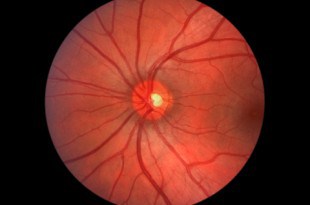What is age-related Macular Degeneration (AMD)?
The ability to maintain sharp and clear eyesight as we age is important for preserving a satisfactory quality of life. The precision of a person’s vision can change multiple times throughout their lifespan. One late adult onset disease that can drastically affect a person’s vision is age-related macular degeneration (AMD). This progressive disease was linked to a potential genetic predisposion as early as 1966. Recently, novel scientific techniques have aided scientists in discovering some of the genetic differences associated with AMD susceptibility with the goal of identifying this disease in patients before vision loss begins.
Variations in at least five different genes have been associated with an increased risk of developing AMD. People who have multiple gene variations also acquire an additive risk of AMD occurrence. These associations have been demonstrated in people of European and Asian ancestry, so they may not hold true for people of African ancestry. Genetic differences in one gene in particular, CFH, are strongly associated with susceptibility to AMD. The CFH gene plays an important role in the body’s immune system by regulating a system called ‘complement’. The purpose of the complement system is to assist the immune system in removing cellular pathogens from the body. If the complement system becomes unregulated, it can lead to local inflammation and, ultimately, tissue damage. It’s hypothesized those genetic differences in the CFH gene may eventually create problems regulating the complement system leading to tissue damage in the eye. Similarly, mutations in other complement-related genes have recently been linked to a risk for AMD development.
Who should be tested for AMD associated genetic mutations?
Currently, there are no standard guidelines or suggestions for monitoring genetic changes associated with increased AMD risk in the general public. Even though there is a strong and consistent association between known mutations and AMD, it is still difficult for doctors to predict with certainty who will develop disease. This difficulty may arise from the knowledge that the frequency of these specific genetic differences varies across different races and ethnicities.
Individuals who are concerned about their chance of AMD should discuss their personal history with their physician to see if genetic testing is suitable. Below are some questions to acknowledge and consider during your physician’s visit:
- Do you have a relative who was diagnosed with AMD?
- Are you a habitual smoker?
- Are you 60 years of age or older?
- Are you a descendant of European ancestry?
Answering yes to all of the questions above suggests you may be at an increased risk for developing AMD though you should seek your doctor’s complete advice.
How can you take action if you have AMD associated genetic mutations?
While genetic differences increase the risk of AMD development, there are also environmental factors linked to an increase risk for this disease. People who are genetically predisposed to develop AMD should also receive regular comprehensive eye exams, abstain from cigarette smoking, maintain a sufficient dietary intake of antioxidant vitamins and zinc, and avoid increased eye exposure to sunlight.
How can genetic testing affect your total health?
AMD typically develops between 60 to 70 years of age. While there is no cure for AMD, specific cases can be managed or treated so it’s best to detect it early. By knowing your genetic status and limiting your exposure to environmental risk factors, you can take control of your eye health.
Websites you can visit for additional information:
Macular Degeneration Partnership
References
Braley AE. Dystrophy of the macula. Am J Ophthalmol. 1966;61:1-24.
Conley YP, Jakobsdottir J, Mah T, et al. CFH, ELOVL4, PLEKHA1 and LOC387715 genes and susceptibility to age-related maculopathy: AREDS and CHS cohorts and meta-analyses. Hum Mol Genet. 2006;15:3206-18.
Maller J, George S, Purcell S, et al. Common variation in three genes, including a noncoding variant in CFH, strongly influences risk of age-related macular degeneration. Nat Genet. 2006;38:1055-9.
Skerka C, Lauer N, Weinberger AA, et al. Defective complement control of factor H (Y402H) and FHL-1 in age-related macular degeneration. Mol Immunol. 2007;44:3398-406.
Sofat R, Casas JP, Webster AR, et al. Complement factor H genetic variant and age-related macular degeneration: effect size, modifiers and relationship to disease subtype. Int J Epidemiol. 2012;41:250-62.
Spencer KL, Glenn K, Brown-Gentry K, et al. Population differences in genetic risk for age-related macular degeneration and implications for genetic testing. Arch Ophthalmol. 2012;130:116-7.
Last Reviewed 27/Feb/2014
Michelle Thiaville PhD
Latest posts by Michelle Thiaville PhD (see all)
- Does Genetics Influence Bone Health? - 02/02/14
- Family Associated Breast & Ovarian Cancer Risk - 30/11/12
- Macular degeneration and genetics - 19/11/12







